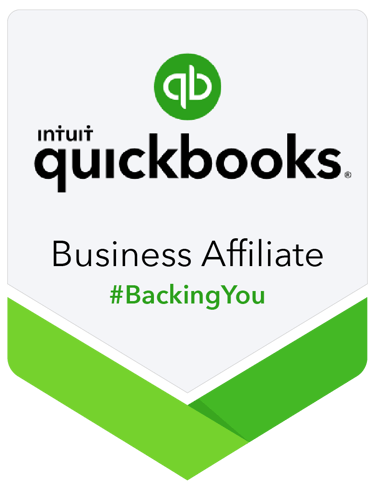Construction Business Tax Deductions Guide: What You Can & Can't Deduct
Learn which construction business expenses are tax deductible. Complete guide covering vehicles, tools, labor, materials & documentation requirements.
CONSTRUCTIONTAX INFORMATION
Jerry Blanco
7/24/20256 min read


Your Complete Guide to Maximizing Deductions While Staying Compliant with the IRS
As a construction business owner, you're juggling multiple roles—project manager, estimator, crew supervisor, and yes, bookkeeper. Between managing job sites and chasing down payments, tax planning probably isn't your favorite topic. But here's the thing: understanding what you can (and can't) deduct could save you thousands of dollars every year.
Think of tax deductions like tools in your toolbox. Just as you wouldn't use a hammer for every job, not every business expense qualifies as a deduction. The key is knowing which tool or, deduction to use for each situation, and more importantly, how to document it properly so the IRS doesn't come knocking.
Let's break down the most common construction business deductions in plain English, so you can keep more of your hard-earned money where it belongs, in your pocket.
Vehicle Usage: Your Truck Is More Than Transportation
Your work truck is probably one of your biggest assets, and thankfully, the IRS recognizes that vehicles are essential for construction businesses. You have two ways to deduct vehicle expenses: the standard mileage method or actual expense method.
Standard Mileage Method: For 2025, you can deduct 70 cents per business mile. This covers gas, maintenance, depreciation, and insurance all in one simple rate. Think of it as a "one-size-fits-all" approach that's perfect if you want to keep things simple.
Actual Expense Method: This involves tracking every penny you spend on your vehicle—gas, oil changes, repairs, insurance, registration fees, and depreciation. You then deduct the percentage that corresponds to your business use. For example, if you use your truck 80% for business, you can deduct 80% of all vehicle expenses.
What You CAN Deduct:
Mileage between job sites
Trips to the lumber yard or supply store
Travel to meet with clients or bid on projects
Driving to the bank for business purposes
What You CAN'T Deduct:
Your daily commute from home to your first job site (unless you have a legitimate home office)
Personal trips, even if you happen to drive past a job site
Documentation is Key: Keep a mileage log with the date, destination, business purpose, and miles driven. A simple notebook in your glove compartment works, or use a smartphone app like MileIQ or QuickBooks. The IRS wants to see contemporaneous records, meaning you wrote it down when it happened, not six months later when you're scrambling to do taxes.
Tools and Equipment: Your Arsenal of Deductions
Tools are the lifeblood of your construction business, and the good news is that most tool purchases are fully deductible. However, the timing of when you can deduct them depends on their cost and useful life.
Small Tools (Under $2,500): These can typically be deducted in full the year you purchase them. This includes hand tools, power tools, safety equipment, and small machinery. Think hammers, drills, saws, hard hats, and work boots.
Large Equipment and Machinery: Items over $2,500 or with a useful life of more than one year usually need to be depreciated over several years. However, Section 179 deduction allows you to deduct up to $1,250,000 (for 2025) in equipment purchases in the year you buy them, as long as your total business income supports it.
What You CAN Deduct:
Hand tools and power tools
Safety equipment (hard hats, safety glasses, work boots)
Tool storage (toolboxes, trailers)
Tool maintenance and repairs
Replacement tools for worn-out equipment
What You CAN'T Deduct:
Tools purchased for personal projects
Tools that aren't necessary for your specific type of construction work
Pro Tip: Keep all receipts and consider taking photos of expensive tools with serial numbers. If they're stolen from a job site, you'll have documentation for both insurance claims and potential theft loss deductions.
Labor Costs: Understanding Employee vs. Contractor Expenses
Labor expenses can be tricky because the rules differ depending on whether you're paying employees or subcontractors.
Employee Wages: These are fully deductible as business expenses, along with your portion of payroll taxes, workers' compensation insurance, and any benefits you provide.
Subcontractor Payments: Also fully deductible, but remember you'll need to issue 1099-NEC forms to any subcontractor you pay $600 or more during the year.
What You CAN Deduct:
Wages, salaries, and bonuses
Payroll taxes (your portion)
Workers' compensation insurance
Health insurance premiums for employees
Payments to subcontractors
Training and certification costs for employees
What You CAN'T Deduct:
Payments to workers you should have classified as employees but treated as contractors
Excessive compensation that the IRS deems unreasonable
Documentation Matters: Maintain clear records of who worked when, what they were paid, and their employment classification. Misclassifying employees as contractors is one of the fastest ways to get into trouble with both the IRS and Department of Labor.
Per Diems and Travel: Staying Fed and Rested
When you're working on projects away from your regular work area, you can often deduct travel expenses, including meals and lodging.
Temporary Work Locations: If you're working at a job site that's temporary (expected to last one year or less) and it's outside your regular work area, you can deduct travel expenses to get there, plus 50% of meal costs.
Overnight Travel: When business requires you to stay overnight, you can deduct lodging costs, 50% of meals, and transportation.
What You CAN Deduct:
50% of meal costs during business travel
Hotel rooms for overnight business trips
Airfare or mileage to distant job sites
Parking fees and tolls for business travel
What You CAN'T Deduct:
Meals during your normal workday at regular job sites
Lavish or extravagant meal expenses
Personal travel expenses
Keep Those Receipts: The IRS is particularly strict about meal and entertainment deductions. Save every receipt and note the business purpose, who was present, and what was discussed.
Materials and Supplies: The Building Blocks of Deductions
Construction materials are generally straightforward, if you use them to complete paying jobs, they're deductible business expenses.
Direct Job Costs: Materials purchased for specific client projects are fully deductible as cost of goods sold. This includes lumber, concrete, roofing materials, plumbing supplies, and electrical components.
Inventory Management: If you maintain inventory, you'll need to track what you have on hand at the end of the year. Only materials that have been used or sold can be deducted.
What You CAN Deduct:
All materials used on paying jobs
Freight and delivery charges
Sales tax on business purchases (if you don't deduct state sales tax on your personal return)
Storage costs for materials
What You CAN'T Deduct:
Materials sitting unused in inventory
Personal supplies mixed with business materials
Office and Administrative Expenses
Even construction businesses need administrative support, and these expenses are generally deductible.
Home Office: If you use part of your home exclusively for business (like a home office where you do estimates and bookkeeping), you can deduct a portion of your home expenses. The key word is "exclusively," the space must be used only for business.
What You CAN Deduct:
Office supplies and equipment
Business phone lines and internet
Professional software and subscriptions
Business insurance premiums
Professional development and training
The Golden Rule: Documentation
Here's the most important thing to remember: the IRS operates on a "prove it or lose it" basis. You could have the most legitimate business expense in the world, but if you can't document it, you can't deduct it.
Essential Documentation Includes:
Receipts for all expenses
Bank statements and canceled checks
Invoices and contracts
Mileage logs for vehicle use
Photos of expensive equipment and tools
Set Up Simple Systems: You don't need fancy software to stay organized. A simple folder system or even a shoebox can work, as long as you're consistent about saving receipts and documenting business purposes.
Common Mistakes to Avoid
Mixing Personal and Business: Keep business and personal expenses completely separate. Use a dedicated business bank account and credit card.
Poor Documentation: "I know I bought it for the business" isn't sufficient documentation. The IRS wants to see proof.
Claiming 100% Business Use: Be honest about mixed-use items. If you use your truck 80% for business, only deduct 80% of the expenses.
Ignoring the Home Office Rules: The home office deduction has strict requirements. Make sure you understand them before claiming this deduction.
Taking Action: Your Next Steps
Understanding these deductions is just the first step. Here's what you should do right now:
Start a Receipt System: Whether it's a folder, envelope, or smartphone app, begin collecting and organizing all business receipts immediately.
Open Separate Business Accounts: If you haven't already, open a dedicated business checking account and credit card. This makes tracking business expenses much easier.
Begin Mileage Tracking: Start logging business miles today. Even a simple notebook in your truck is better than trying to recreate months of driving later.
Review Your Current Expenses: Look through your recent purchases and identify business expenses you might have missed in previous years.
Plan for Next Year: Consider major equipment purchases and timing them strategically for maximum tax benefits.
Remember, these deductions aren't just about reducing taxes, they're about accurately reflecting the true cost of running your construction business. When you properly track and deduct legitimate business expenses, you get a clearer picture of your actual profitability, which helps you make better business decisions.
Tax planning isn't just a once-a-year activity. By staying organized and understanding these rules throughout the year, you'll save time, money, and stress when tax season arrives. And who knows? You might even find that bookkeeping isn't as scary as working on a roof in January.


